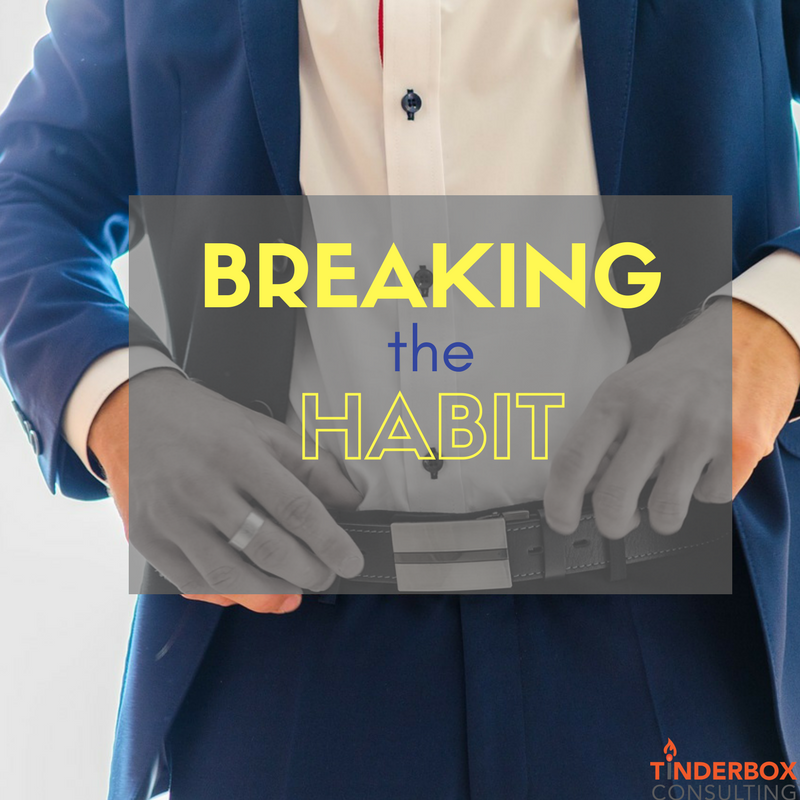I forgot to wear a belt yesterday. Which was weird only because I wear a belt every day. The thing is, I didn’t notice until about halfway through the day. Up until that point, I didn’t notice at all. The pants fit well, so it wasn’t like they were falling down causing me to pull them up all day. It was actually rather comfortable.
But, as soon as I realized I wasn’t wearing a belt, I felt naked. I didn’t feel naked before, but, because I realized I was missing something, I felt incomplete.
Today, my pants require a belt. They’re a little loose and if I don’t support them, I’ll be pulling them all day like a toddler.
How many things do we do on a regular basis out of habit? Out of comfort or out of fear? How many of these things do we do that we don’t actually need to do?
Looking at my business, I can’t help but wonder how many belts I’m wearing when the situation doesn’t actually require that kind of support. Similarly, I wonder how many situations require a belt, but instead, I’m content to just pull up my pants.
I’m not sure if this metaphor makes sense to you or not. I hope it does.
The feeling of comfort shouldn’t be dictated by doing the same thing everyday. It should come from doing the exact thing the current situation requires.
So, here’s some steps to take to look for belts in your business:
- The next time you don’t land a new contract or client, ask why they didn’t want to work with you.
- Ask your employees if they recognize any systems or processes that are redundant, unnecessary, or tedious.
- Do a process review to see if there’s any fat that can be trimmed.
- Ask a trusted friend or family member to act as a prospect and encourage them to give you honest feedback.
- Better yet, ask that truest friend to job shadow you for a day and make notes.
- Keep a detailed record of how you spend each hour of your workday for a week. See if any unnecessary belts show up.
A final thought. Just because something is comfortable but unnecessary doesn’t make it bad. But, we should always look at comfort as an opportunity to explore whether or not we’ve grown complacent.


